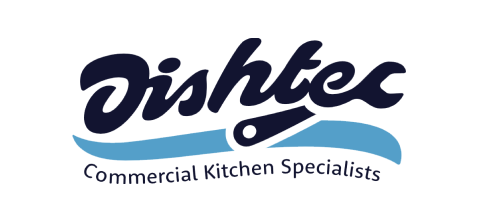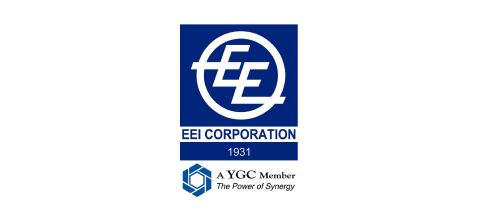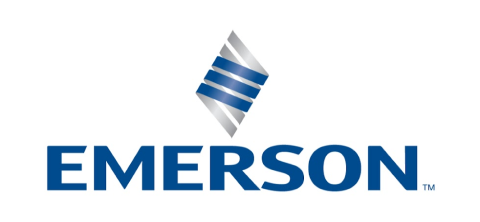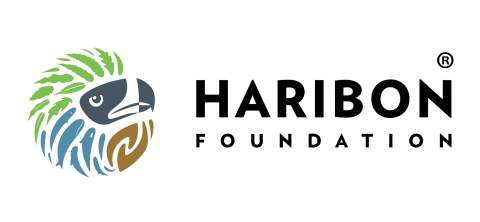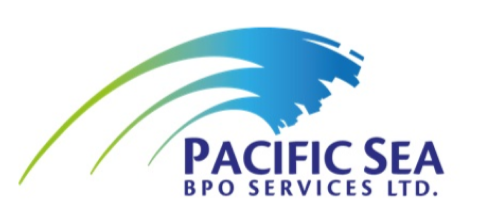Language proficiency is now more important than it has ever been before in a world that is becoming increasingly interconnected. English is a lingua franca that bridges the gap between speakers of a wide variety of cultures, ethnicities, and professional fields. It is one of the many languages spoken around the world. Students frequently question whether or not studying English Language is practical for them, wanting to know how it will relate to their future careers.
In this blog post, we will delve into the various aspects of English grammar that are fundamental, such as the parts of speech, the verb tenses, the sentence structure, subject-verb agreement, noun forms, adjective usage, adverb placement, prepositions, articles, and punctuation.
We will investigate how having strong English language skills can significantly improve employability and open doors to various professional fields such as business, tourism, education, and international relations.
- The Foundation: Understanding Parts of Speech
- Mastering Verb Tenses for Effective Communication
- The Backbone of Sentences: Sentence Structure
- Ensuring Harmony: Subject-Verb Agreement
- Building Blocks of Language: Noun Forms
- Enhancing Expressiveness: Adverb Placement
- Navigating Relationships: Prepositions
- The Power of Precision: Articles
- The Art of Punctuation
The Foundation: Understanding Parts of Speech
It is essential to have a firm grasp of the building blocks of language before delving into the complexities of English grammar, which are known as the parts of speech. Nouns, verbs, adjectives, adverbs, prepositions, pronouns, conjunctions, and interjections are all examples of the various parts of speech. Parts of speech are the fundamental building blocks of sentences. Ideas, feelings, and deeds can all be communicated effectively with the help of these components. A strong understanding of these components is essential because it lays the groundwork for the construction of sentences that are coherent and effective.
Mastering Verb Tenses for Effective Communication
When it comes to expressing actions or occurrences in a variety of time frames, verb tenses are of the utmost importance. Individuals are able to articulate their ideas with greater precision and clarity when they have a solid grasp of how to correctly use various tenses, ranging from the straightforward present and past tenses to the more involved future tenses. The ability to effectively tell stories is highly valued in many professions, including journalism, literature, and content creation, and requires a solid understanding of verb tenses.
The Backbone of Sentences: Sentence Structure
The arrangement of words and phrases to form sentences that make sense is referred to as sentence structure. The ability to comprehend subjects, verbs, objects, and complements is required for it. One’s capacity to articulate difficult ideas and thoughts is improved when they are skilled in the construction of a variety of sentence structures. A strong command of sentence structure is extremely valuable in professions such as law and marketing, both of which place a premium on clear and accurate communication, as well as on the use of creativity in the formulation of persuasive statements.
Ensuring Harmony: Subject-Verb Agreement
The term “subject-verb agreement” describes the process of matching the appropriate verb form with the subject of a sentence. This grammatical rule is absolutely necessary for ensuring that sentences are consistent and easy to understand. Individuals who are able to communicate in a manner that is both professional and accurate, free of errors in subject-verb agreement, are highly valued by employers in a variety of fields, including corporate communication, customer service, and public relations.
Building Blocks of Language: Noun Forms
Individuals are able to communicate specific information and add vivid descriptions to their writing or speech if they have a working knowledge of the forms and usage of nouns and adjectives. Accurate terminology is crucial in fields such as medicine and science, making precise noun usage absolutely necessary in these areas. On the other hand, adept adjective usage is valuable in fields such as advertising and creative writing, where evocative language is an effective tool.
Enhancing Expressiveness: Adverb Placement
By modifying verbs, adjectives, or even other adverbs, adverbs give sentences additional nuance and complexity. A communication’s expressiveness and impact can be significantly boosted by the strategic placement of adverbs. It is essential for people working in fields such as public speaking, politics, and the entertainment industry to be able to effectively convey their emotions, and adverbs play an important part in accomplishing this objective.
Navigating Relationships: Prepositions
Words in a sentence are said to have relationships with one another when prepositions are used. They play an essential role in indicating not only the location but also the time, the direction, and other significant aspects of the context. It is of great value to be skilled in the use of prepositions in fields such as translation, international business, and diplomatic relations because these are all areas in which accuracy and cultural sensitivity are of the utmost importance.
The Power of Precision: Articles
Although the use of articles like “a,” “an,” and “the” may not appear to have much of an effect on communication, this is not the case. Changing the meaning of a sentence or highlighting certain components can be accomplished by using articles correctly. Mastering articles can be a differentiating factor in one’s professional success, particularly in professions such as law and academia, where the use of precise language is essential.
The Art of Punctuation
Punctuation marks are like road signs for the written word because they direct the reader through sentences and paragraphs. In addition to denoting pauses, they connect ideas and make the meaning more clear. In professions such as editing, journalism, and publishing, where precision and coherence are of the utmost importance, using punctuation correctly is absolutely necessary.
Professional Fields and the Demand for English Language Skills
After going over the fundamental aspects of English grammar, the next step is to investigate the ways in which proficiency in these language skills is highly valued in a variety of professional fields, which significantly improves one’s employability and opportunities for advancement.
- Commerce and all forms of communication
- Hospitality and Vacation Destinations
- Institutions of Learning and Instruction
- The Practice of Diplomacy and International Relations
- Public Relations and Journalism
1. Commerce and all forms of communication
When it comes to being successful in business, having strong communication skills is essential. Individuals who are fluent in the English Language are in a better position to interact confidently with customers, coworkers, and partners who come from a variety of linguistic backgrounds. Strong language skills can set individuals apart from their competition and open doors to lucrative career paths, whether they are used for negotiating business deals, delivering persuasive presentations, or writing compelling content for marketing purposes.
2. Hospitality and Vacation Destinations
Providing remarkable experiences for one’s clients is essential to the success of the tourism and hospitality industry. The ability to communicate fluently in English enables professionals working in this industry to serve an international clientele with ease and to craft experiences for tourists that they will never forget. In addition, having the ability to communicate in multiple languages can open doors to interesting career paths, such as being a tour guide, a travel writer, or working in international event management.
3. Institutions of Learning and Instruction
Skills in the English language are obviously necessary for educators and teachers, but their application goes well beyond simply instructing people who are still learning the language. Teachers with strong language skills have the ability to effectively engage students, promote inclusivity, and foster cross-cultural understanding in classrooms that include students from diverse backgrounds. In addition, having a command of multiple languages can open doors to careers in areas such as international education and language teaching.
4. The Practice of Diplomacy and International Relations
Communication that is free from misunderstanding is of the utmost importance in the field of international relations and diplomacy. In order to successfully foster productive dialogues between nations, professionals in this field need to navigate the complex political and cultural landscapes that exist today. It is impossible to overstate the importance of having English as a common diplomatic language in order to facilitate negotiations, draft agreements, and promote international cooperation.
5. Public Relations and Journalism
Storytelling that is both compelling and accurate is essential to the media and journalism industries. Journalists who have a solid command of the English language are more capable of effectively communicating stories, conveying information in a condensed manner, and adhering to stringent editorial standards. Language ability is absolutely necessary for making an impression on audiences that will last, whether it be through print or digital media.
Conclusion
In conclusion, English language skills are not only practical but also highly advantageous for future careers. A deep understanding of English grammar basics, including parts of speech, verb tenses, sentence structures, subject-verb agreement, noun forms, adjective usage, adverb placement, prepositions, articles, and punctuation, forms the foundation for effective communication across various industries.
From business and tourism to education and international relations, employers value professionals who can articulate ideas with clarity, precision, and cultural sensitivity. English proficiency opens doors to exciting career opportunities, enhances employability, and allows individuals to excel in a globalized job market.
For students pondering the practicality of studying English, it is evident that this valuable skillset not only boosts career prospects but also empowers individuals to navigate the complexities of our interconnected world with confidence and competence. Whether pursuing a career in a creative industry, corporate sector, or international arena, English language skills will undoubtedly be an asset for personal and professional growth. So, invest in honing your English language skills today, and embark on a rewarding journey towards a successful and fulfilling career.
Join Us
Are you ready to embark on a journey of language mastery? Look no further than American English Skill Development Center Inc. in Makati! We are dedicated to empowering learners of all ages and backgrounds, making English accessible and enjoyable for everyone. Our specialized programs cater to kids/teens, adults, working professionals, and companies, ensuring a personalized learning experience for each individual both online and face-to-face.
Our team of expert instructors is committed to nurturing your language skills, whether you seek academic excellence, professional growth, or simply wish to communicate with confidence. With a wide range of courses tailored to your specific needs, you’ll find the perfect fit to achieve your language goals.
Explore our comprehensive language programs on our user-friendly website americanenglish.ph, where you’ll find detailed course descriptions and testimonials from our satisfied students. Alternatively, you can reach out to us directly at +63(2) 8663 1787 to discuss your aspirations and get personalized guidance. Invest in yourself today and unlock a world of opportunities! Join American English Skill and Development Center Inc. and experience the joy of expressing yourself fluently and articulately in English. Your journey to success begins here!












